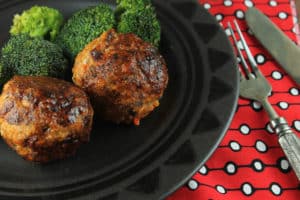
Bad breath – or halitosis – is never a good thing. Halitosis may not be harmful, but it is still unpleasant to deal with in daily life.
Bad oral habits are the most common of cause of halitosis. Certain chronic diseases can also cause bad breath.
You know what else can cause halitosis? You guessed it. Certain foods and diets can be the culprit.
A low carbohydrate diet has a range of beneficial effects. Reducing carbohydrate intake can improve weight loss and boost energy.
Unfortunately, one of the potential trademarks of a low carbohydrate diet is halitosis.
But before we go any further, let us delve deeper into what happens in your body when you eat too many carbohydrates. (Source)
Table of Contents
Carbs and Diet

On a high carbohydrate diet, your body will burn glucose as fuel. Glucose is the easiest compound for your body to convert into energy.
There are several disadvantages of glucose being your chief source of energy. First and foremost, fat gets stored uselessly.
Over time, an excess of carbohydrates can cause weight gain. Your risk for becoming obese will also increase. Obesity can lead to a variety of serious health complications.
You may get a brief energy boost after eating a high carbohydrate meal or snack. However, that energy is usually short lived.
Eating primarily carbohydrates can lead to nutritional deficiencies. Your body needs vitamins and minerals to stay healthy. This means eating a varied diet, not just one category of food. (Source)
Low Carb Diets And Ketosis

Diets that restrict carbohydrates have been around for over 100 years. The benefits of low-carb diets all stem from reducing glucose.
But first, let’s make something clear. A healthy, low-carb diet can have a multitude of benefits. However, it is important to eat the right sorts of foods. A healthy low-carb diet isn’t about starving yourself.
For starters, a low-carb diet tends to promote weight loss and reduce hunger. You can also look forward to better energy levels. Your blood sugar levels will drop and stabilize.
In addition to that, your risk for heart disease will decrease. You will also be less likely to suffer from diabetes and obesity. (Source)
Once you restrict or eliminate carbohydrates from your diet, your body will enter ketosis.
Ketosis is a metabolic state the body enters into when food sources are low. You don’t need to (and shouldn’t) starve yourself to enter ketosis. Eliminating carbohydrates is enough!
A ketogenic diet involves eating lots of healthy dietary fats. This is to ensure that you’re getting enough nutrition. Fats are also the primary energy source for your body in ketosis.
What should and shouldn’t you be eating to enter ketosis?
Read our guide to the ketogenic diet
It’s pretty straightforward. To reach a ketogenic state, you’ll be eliminating carbohydrates.
If you have to eat carbohydrates, it will be in limited quantities. You shouldn’t consume more than 15 grams of carbohydrates a day.

These are the foods that are off the table:
- All grain-based products (wheat, bread, pasta, etc)
- Processed dairy
- Sugary foods
- Legumes
- Tubers
- Fruits
Here’s what you will be eating instead:
- Meats (preferably grass-fed or organic)
- Healthy fats like coconut and olive oil
- Nuts and seeds
- Fatty dairy (hard cheeses, grass-fed butter, etc)
- Vegetables that grow above ground
- Leafy green vegetables like kale and spinach
The bulk of your meals should consist of healthy fats and vegetables. Protein should be consumed in moderation.
In the absence of glucose, the body will begin to burn fat. Eventually, your body will begin producing ketones. When your body is producing a certain level of ketones, you will enter ketosis.
Your body will essentially change the way it burns energy. It can take time for your body to adjust. Just as with any major physical change, it can come with side effects.
Your body may go through what’s referred to as keto-flu. This is a normal part of the process. Keto-flu can last from 1-2 weeks as your body adapts.
Symptoms of keto-flu can include:
- Lower energy levels
- Difficulty sleeping
- Water retention and bloating
- Loss of libido
- Lower stamina while exercising
- Cravings for carbohydrates or sugary foods
- Increased moodiness or irritability
- Halitosis
But there’s a silver lining: keto-flu is only a temporary part of the process.
The eventual long-term benefits you will reap from ketosis include:
- Rapid weight loss
- Reaching and maintaining a stable weight
- Improved energy
- Improved concentration
- Reduced hunger
- Reduced cravings for carbohydrates and sugary foods (Source)
How To Avoid Ketosis Breath

You may have noticed that one of the symptoms of keto-flu includes halitosis. What’s the reason behind this unpleasant side effect?
Ketones come in three different forms:
- Acetone
- Beta-hydroxybutyrate
- Acetoacetate
When your body is in ketosis, you are producing high quantities of ketones. An excess of ketones are expelled through exhalation or the urine.
Ketones possess a distinctive smell. They can make your breath smell fruity and sweet. An excess of acetone-based ketones may produce a smell like nail polish remover.
Your halitosis may be caused by dietary changes more than ketosis. Too much dietary protein can cause your breath to smell strongly.
The body breaks down protein by producing ammonia. The more protein the body breaks down, the more ammonia it will produce. This can cause your urine as well as your breath to develop a strong smell.
The most obvious way to eliminate keto-breath is by coming out of ketosis. If this isn’t an option, don’t worry – there are other solutions.
Halitosis is caused by too much bacteria in the mouth. When this bacteria breaks down food it produces VSC’s (volatile sulphur compounds). These compounds are responsible for bad breath.
Here’s how you can combat keto-breath:
- Drink more water to get rid of excess bacteria in the mouth.
- Besides brushing and flossing, try cleaning your tongue. Studies have revealed that keeping your tongue clean may be more effective than brushing your teeth to fight halitosis.
- Decrease dietary protein and increase fat intake
- Use mints and mouthwashes to mask the bad breath.
Above all, stay patient! Keto-breath is usually a temporary side effect. In a matter of weeks, you’ll be back to normal.